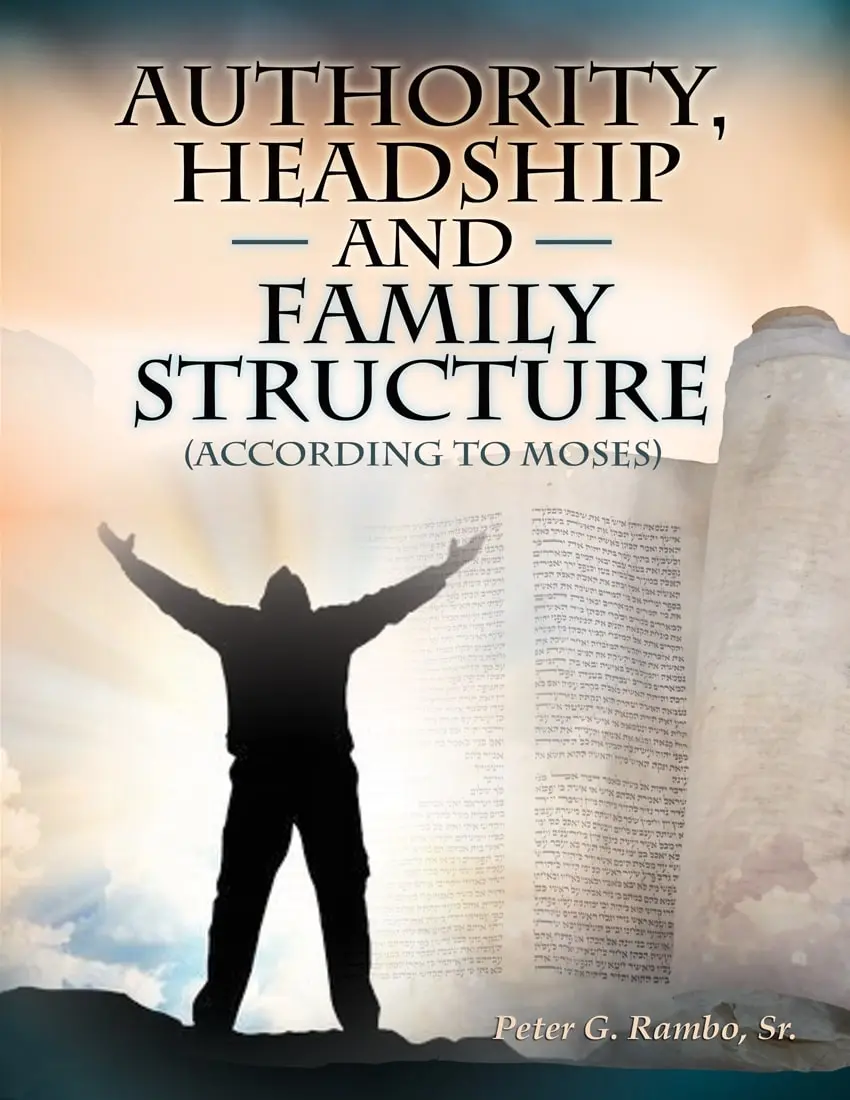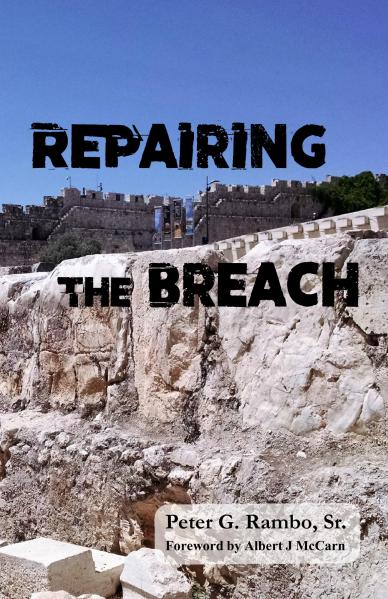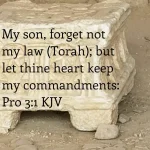For centuries, millenia, really, Christendom has embraced an error that it calls the ‘Three-Fold Division of the Law.’ It is particularly prevalent in Reformed circles, sometimes even called a ‘cornerstone’ of reformed teaching. Most all other main streams of theology embrace the error to one degree or another, as a means of justifying their particular theological bent.
The general gist of the position is that the Law of Moses can be divided up into three categories; moral, civil, ceremonial; and that two of the three categories are no longer valid, or have been annulled/abrogated.
The thumbnail sketch of history will often assign the origins of this division to Thomas Aquinas in the 1200’s, where indeed he did articulate most clearly and popularize the system of thought, but the threads of this can be traced into the mid-200’s. (Those who desire a quick jaunt through history can read The Threefold Division of the Law by Jonathan F. Bayes. His conclusions are wrong as I will demonstrate, but his short article is a decent primer on the subject from The Christian Institute’s perspective.)
John Calvin, in his Institutes on the Christian Religion, refers to the threefold division and thereby errantly lays the accepted foundation for most of Protestantism. Later, the Westminster Confession of Faith codified the division in chapter 19, paragraph 3:
III. Besides this law, commonly called moral, God was pleased to give to the people of Israel, as a church under age, ceremonial laws, containing several typical ordinances, partly of worship, prefiguring Christ, His graces, actions, sufferings, and benefits; and partly, holding forth divers instructions of moral duties. All which ceremonial laws are now abrogated, under the New Testament.
Just to be clear, ‘abrogated,’ according to Merriam-Webster’s Dictionary means:
The threefold division is still much discussed and debated after 1700 years of ‘church history’ have passed under the bridge. Not long ago, Philip Ross wrote a book about this history and the divergent viewpoints within titled, From the Finger of God. While he is defending the position, he has to admit that after this great time, even the wisest of the dividers cannot agree on where some laws fit and therefore the laws’ applicability. Maybe that should be a hint that the whole idea has problems.
Instead of gathering opinion from man, let’s see what Scripture has to say…
The obvious first place, and the insurmountable barrier to those who hold this position are the words of the Lawgiver Himself;
17 “Do not think that I came to abolish the Law or the Prophets; I did not come to abolish but to fulfill. 18 For truly I say to you, until heaven and earth pass away, not the smallest letter or stroke shall pass from the Law until all is accomplished. 19 Whoever then annuls one of the least of these commandments, and teaches others to do the same, shall be called least in the kingdom of heaven; but whoever keeps and teaches them, he shall be called great in the kingdom of heaven.
20 “For I say to you that unless your righteousness surpasses that of the scribes and Pharisees, you will not enter the kingdom of heaven. Matthew 5:17-20
But that is not all Yeshua (Jesus) had to say…
Given the golden opportunity to divide the Law and/or set the stage for the ‘dividing of the Law,’ or abolishing thereof, see what He says;
36 “Teacher, which is the great commandment in the Law?” 37 And He said to him, “‘You shall love the Lord your God with all your heart, and with all your soul, and with all your mind.’ 38 This is the great and foremost commandment. 39 The second is like it, ‘You shall love your neighbor as yourself.’ 40 On these two commandments depend the whole Law and the Prophets.” Matthew 22:36-40
Yeshua doesn’t divide the law. Rather, He affirms the WHOLE of it. The indivisibility of it!!
In fact, Scripture NEVER divides the Law/Torah, rather, it always speaks of it as a whole. Yes, Yeshua and others affirm that there are weightier matters of the Law, those that temporarily suspend others at certain points, but they do not nullify, annul, abolish or abrogate anything. (An example would be the ‘work’ of circumcising a boy on the eighth day if it fell on a Sabbath. The Sabbath ‘no work’ law is temporarily suspended for the weightier law of circumcision.)
Without belaboring the point, suffice it to say, Torah will be written on our heart in the ‘new’ covenant:
“But this is the covenant which I will make with the house of Israel after those days,” declares the Lord, “I will put My law (Torah) within them and on their heart I will write it; and I will be their God, and they shall be My people. Jeremiah 31:31-34 for larger context
So, how did theologians get to the place where they divided the Law? And why?
I will speculate a little here, so bear with me.
I think there are two major contributing factors to why the Law was divided.
First, increasing antisemetism by the Roman empire from the middle first century on, fostered a climate where the new Gentile believers sought, errantly, to separate themselves from anything that looked ‘Jewish.’ Thus, reasoning was needed to avoid the things Scripture says ‘set you apart,’ like feasts, diet, day of worship and dress. I wrote previously about these very things as what Scripture defines as marks of holiness, or set-apartness. [Lest I be misunderstood, let me be abundantly clear: Works do NOT save. We are saved by faith in the blood of Messiah Yeshua and the works evidence that entry, by His blood, into covenant with Him!]
So, those who sought to redefine believers in Yeshua into a new religion, did so by redefining some of the commandments of Yahweh as ‘Jewish,’ and then distancing themselves from them through warped theology. This was confirmed by an astute political move by Constantine that proves, even in 325 CE, many believers in Messiah were still celebrating the feasts, worshiping on the Sabbath, and eating clean. The Bishops of Rome, being his co-conspirators, affirmed his ruling through their theology, setting the course for even those who ‘protest their mother, the Roman Catholic Church.’
Secondly, the destruction of the Temple in Jerusalem, as well as the diaspora of the Jews, became a major challenge to theological thought concerning those laws deemed ‘ceremonial’ and ‘civil.’ Instead of rightly understanding these to be ‘suspended,’ as the Jews did when they went into captivity to Babylon, they assumed them abolished or annulled at the cross of Yeshua.
To take this position, theologians have to ignore numerous verses that point to Rav Shaul (Paul) keeping the feasts and offering sacrifices. They have to ignore verses in Hebrews, written decades after the resurrection of Messiah, that state the offerings were being offered ‘according to the law’ at the time of writing. They have to countermand the very words of Messiah when He says, ‘until heaven and earth pass away… not one jot or tittle will pass from the Law…’ Ouch!
Without going into great detail, dividing the law creates more problems than it ‘solves.’
As previously demonstrated, dividing the Law is directly contrary to the testimony of Scripture about it being ‘holy,’ ‘just,’ good,’ etc. Further, it is opposed to the words of Messiah, the Lawgiver, particularly when He says,
If you love Me, you will keep My commandments.
and,
What I teach doesn’t come from me but from the one who sent me.
Perhaps the most glaring non-Scriptural evidence is the fact that once we accept the idea that the Law can be divided, it opens the door for anyone to divide it according to their own proclivities. Just reference the previously mentioned book by Ross. Then go read how some of the more liberal denominations are defining sins that the Torah calls ‘abominations.’
Another problem with dividing the Torah is that churchianity makes itself into a hypocrite by preaching that the ceremonial laws are ‘abrogated,’ then, they pass the offering plate requesting your ‘tithe.’ Hmmmm… Yeah, I hear tap-dance music starting up.
Still another glaring problem is the clear reference to ‘ceremonial laws’ in passages of Scripture that theologians almost universally call ‘millennial.’ Just read Isaiah 66:16-24 or Zechariah 14:16-21 for future prophecy on food (swine), Sabbaths, new moon festivals, Feast of Booths, sacrifice and a priesthood. Reformed Presbyterians (and many other denominational groups) dodge this bullet by declaring that there is no such thing as a ‘millennial reign,’ contrary to Revelation 20:1-7. The result is to spiritualize and warp, or altogether ignore, a HUGE pile of prophetic passages.
These problems alone should be enough to give cause for concern about dividing the Law.
Part of the defense for the Threefold Error, is expressed by Jonathan Bayes in his previously linked article. Scriptures expressing Yahweh’s displeasure with sacrifices are paraded out in classic ‘proof-texting‘ form. The context from which the passages come is ignored, as is the larger context of Scripture previously generalized. See Bayes’ cites and then read in context to find that the Father’s desire is not the terminaton of sacrifice and offering, but rather, Yahweh desires a contrite heart so that the sacrifice and offering is accepted!
Bayes’ use of these verses, evidencing the wicked hearts of those offering sacrifices, is to demonstrate that the sacrifices are useless and thus voidable. He ignores verses that say,
21 The Lord was pleased for His righteousness’ sake
To make the law (Torah) great and glorious.
22 But this is a people plundered and despoiled;
All of them are trapped in caves,
Or are hidden away in prisons;
They have become a prey with none to deliver them,
And a spoil, with none to say, “Give them back!”
The problem isn’t the Torah!! The problem is the people!!
This same false dichotomy is used by those who try to prove the Torah has been done away with. They cite Hebrews 8:8
For finding fault with them, He says,
“Behold, days are coming, says the Lord,
When I will effect a new covenant
With the house of Israel and with the house of Judah;
In their bias, theologians read this verse and ‘see’ ‘for finding fault with IT,’ but the text says, THEM! The problem is not and never has been the Torah. The problem is the heart of man.
Abolishing and rejecting two thirds of the Torah does not make man more righteous or give him an easier path to righteousness! A circumcised heart is what does!
God’s Word has not failed, nor does He need a ‘plan B.’
The Torah still stands! It is the everlasting covenant! Messiah simply opens a way for us to be grafted into His rich root and become a member of the commonwealth of Israel.
Of course, those who divide the Law, get to this point and decide to try using absurd twists on the Torah to make points. They say, ‘Oh, so you won’t mix threads? See how that flies at Walmart!’ Or, ‘I guess you are sacrificing in your backyard?’ Or, ‘Gonna stone your children? That’s what Torah says to do to your rebellious children!’
These sorts of obnoxious absurdities reveal two things.
First, and foremost, getting these types of comments, particularly from pastors and those trained in theology, is deeply troubling. Many, many of these types of comments reveal a profound lack of understanding/knowledge of the Torah and what it actually teaches. As a seminary trained former pastor, I can honestly tell you, the vast majority of those with seminary training/degrees, nevermind the pew warmers, have NO real understanding of Torah and have so many antisemitic presuppositional biases to deal with that it is hard to even have intelligent conversations. Most prefer ignorance, despite the fact that as an excuse it will be of no value before the Creator when they have to give account. (If you are a pastor reading this, instead of getting huffy, I would recommend prayerfully taking off your denominational filters/glasses, and prayerfully ask the King to reveal TRUTH to you! Dare to ask Him to reveal any antisemitism or falsehood in your thought process. Be a man and buck up! I walked in your shoes. I can say that!)
Secondly, these obnoxious absurdities reveal a heart condition… Basically, there are two types of believers: Those who look for ways to fulfill the commands as best they can according to the Torah, and those who look for ways around the commands, despite clear Scriptural evidence to the contrary. The first demonstrates a circumcised heart, while the second is evidence of a stiff-neck. Which are you? Do you prayerfully seek to do all that you can do, leaving the rest for the Father to take care of? Or, do you search the Scriptures for proof-text verses that support your desire to avoid obedience?
Instead of committing the error of dividing the Law and looking to justify ways around it like our fathers did, should we not be seeking to do all that He asked of those who love Him, while leaving the details, or ‘impossible’ ones up to Him?
I choose to obey and walk as closely as I can, trusting that He can work out the details where I may not understand it all, until He comes again to teach rightly His Torah.
Abba, I pray for myself and these, my readers. Open our eyes and give us hearts that simply desire to be obedient to your Word. Give us understanding and clarity as we seek truth. Show us how to love You in the ways You ask to be loved. Please do so for Your Name’s sake!! Amein!
Further reading: Has the Application of the Law Changed?




















































































































So very true, Pete! Great post and one many need to not only read, but understand. I join with you in your prayer. May YHWH open blind eyes. May our love not grow cold due to lawlessness! (Mt. 24:12)
LikeLike
Like your verse on lawlessness, another comes to mind pertinent to this discussion…
Matthew 7:21-23… “Not everyone who says to Me, ‘Lord, Lord,’ will enter the kingdom of heaven, but he who does the will of My Father who is in heaven will enter. 22 Many will say to Me on that day, ‘Lord, Lord, did we not prophesy in Your name, and in Your name cast out demons, and in Your name perform many miracles?’ 23 And then I will declare to them, ‘I never knew you; depart from Me, you who practice lawlessness.’
These who apparently ‘know’ Him and call on Him are asked to depart, NOT because they practice the Law, but because they ‘practice lawlessness.’ Hmmmm…..
Still another reason to think twice before telling anyone that the law, or parts of the law, is done away with….
LikeLike
Wonderful article! May I re-post this on my blog to share with my readers?
LikeLike
Absolutely! Thanks for even considering it!
May Yahweh bless you!
LikeLike
Pingback: The Error of Dividing the Law | Eyeball to Eyeball
Amen! This clears up the confusion I got from reading that blogpost by Mark Driscoll I sent you.
Another interesting point I don’t know if you’ve talked about – I looked up a list of the 613 commands. Of course this list was written by Jewish scholars, so small handful of commands on the list are actually ridiculous. For example, 107 is “That the new month shall be solemnly proclaimed as holy, and the months and years shall be calculated by the Supreme Court only” and the scripture is Ex. 12:2. Yeah…notice calculated by the Supreme Court only? Yet in 13:4 Moses talks about coming out during the month of Aviv. Thus – time and seasons determined by agriculture according to Yah’s law, not according to Rabbi calculations.
Also, other commandments are listed twice because there are two scriptures for it. That’s just one command listed twice, not two commands…
We should stop thinking about “the Law” as scary 613 commands, and look at them more simply as applications of the Ten Words. (This comment is long. Maybe it should turn into a blogpost…)
Shalom!
LikeLike
I wa prepared to not like the article, but it made very good points, and I was appreciating the approach…
Right up until the “obnoxious absurdities” section in which the author assails the church (of which I would remind him he is a part) and with overly-broad brush strokes assails pastors and theologians.
My only other disappointment is that, while criticizing his theological opponents for ignoring verses that challenge their a priori position, he does the very same. For example, failing to include Hebrews 8:13 in the mix, which challenges his own view.
As a Jewish follower of Jesus I have long wrestled with this tension, and while I agree that the three-fold division is artificial, I disagree that it is anything near as simple as the “whole” approach the author takes (though admittedly it is less problematic). In support I give you Romans 14. Why would such a lengthy treatment on differing convictions about dietary & ceremonial laws be necessary if the answer is simply that everyone is expected to observe everything?
That said, honest debate such as this article brings out (insults not withstanding) is necessary and good.
LikeLike
Glenn,
Thanks for dropping by and I appreciate the honest feedback. Yes, the end of the article is a bit over the top, but, having spent time in the pulpit and going toe-to-toe with pastors on a regular basis, I get a bit frustrated. I want then to simply take a hard look, but most refuse to even consider options outside of their established box… I suspect, as a Jewish believer in Mashiach, you have had the same experiences from time to time. I love them, and there are plenty of ‘easy reading’ posts on here… once in a while I feel the need for a firmer approach…
As for Hebrews 8:13.. You may want to check the Greek or use a translation that highlights or italicizes supplied words. Here is the verse in the NASB with italicized word:
13 When He said, “A new covenant,” He has made the first obsolete. But whatever is becoming obsolete and growing old is ready to disappear.
The translators added the word ‘covenant.’ It does NOT appear in the originals. In fact, the word ‘covenant’ is added to 8:7 as well giving the impression that the problem was the covenant. But look at verse 8!! The fault is with ‘them’… the priesthood and the people. The whole book of Hebrews is about a change in the High Priesthood. But even at that, the author of the book, writing 30 years +/- after the resurrection of Mashicah, says in 8:4 that the sacrifices being offered in the Temple were being offered ‘according to the law.’ I.e., ‘lawfully.’
Translators with presuppositional biases have done us no favors on that passage. I know I address it in other places on this blog…. Maybe in the Lying Pen of the Scribes series? I can’t remember. Need more coffee… LOL!
Anyway, thank you for expressing your concerns about tone, and I certainly apologize if I offended.
Shalom Aleichem.
LikeLike
No apology necessary. And I will review Hebrews 8 in the original. Shalom!
LikeLike
You might try reading the Aramaic-English New Testament (Andrew Gabriel Roth). Very enlightening/informative to say the least. Will answer many things if answers/truth are what you want. Read the commentary AND the ‘appendix’.
LikeLike
Pingback: “What’s this sound of bleating in my ears?” | natsab
Pete. Great blogs. Am glad to be back online.
LikeLike
Glad to have you back, sis!
LikeLike
SHALOM PETE. Good words. have enjoyed several of your posts. Met you and your wife in Greenville recently when Bill Cloud didnt show up. Hope to see you again soon. bj
LikeLike
Shalom, my friend!! I have your card here on the desk and have been by your site, as well! Was good to meet you and thank you for dropping by.
LikeLike
Pingback: Diminishing God’s Law | natsab
Pingback: Stronger faith = less obediece? Say, what?!? | natsab
Pingback: Sacrifice a ‘Jewish Custom?!’ IVPNT: Acts Pt 4. | natsab
Pingback: Leviticus 19 ~ Apologetically, A Most Useful Chapter! | natsab
Pingback: Levítico 19 ~ Desculpando, Um Capítulo Mais Útil! | um só corpo, uma só fé
Pingback: “A Time For Waterfall Eyes” : A Response | natsab
Pingback: Westminster Confession Errors, Pt. 1 | natsab
Hi Pete, I know this is an older post, but I just read it for the first time. You have wonderfully articulated your thoughts! I didn’t know when the division of the Law took place. Should make people stop and think, why didn’t the disciples who walked with Yeshua make these divisions? Why didn’t Yeshua clear up all of their ‘wrong theology’ while he was with them? What I am going to write next may be controversial to many and I would be interested in your thoughts on it. I haven’t found anywhere that the disciples or apostles would have considered the “New Testament” Scripture. I found it wasn’t until more than a hundred years later that the First century writings started to be considered by some to be Scipture. Don’t get me wrong, I am glad we have them, but to me, the 27000 fragments that make up the New Testament are not equal to the Scriptures that Yeshua used. In fact the New Testament wasn’t even around in his day and for some time. Furthermore, can a man’s opinion be considered Scripture? Paul writes that some of what he is writing is from God, and other opinions are from himself, not ‘the Lord’. 1 Corinthians 7: 10-12, is one example. To sum up what I am saying, if there seems to be a contradiction,( which I really don’t think there are) between the writings of the first century, and the Scriptures Yeshua was using (tanak), then I will go will the ‘Old’ testament. If, however, the later writings add clarity to that which was already written, then wonderful.
LikeLike
I tend to agree… The foundation is the Torah, everything else is history and commentary. All true prophets pointed back to the Torah. Yeshua, the Messiah did the same. The ‘new’ testament has much wisdom and is, I believe, the Word of YHVH, but it means little without a clear understanding of Torah.
LikeLike